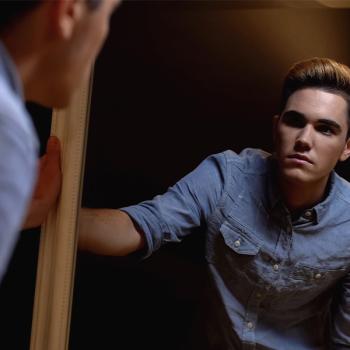desire longs for a less mediated reality. – anna smith
Delight yourself in the LORD and he will give you the desires of your heart. — David
I have this old pair of shoes. The other day as it was pouring down with rain (as it does in England!) I found out the hard way that the shoe had a hole. Needless to say, my right foot was baptised, unbelievably so!
My shoes weren’t always filled with holes. They weren’t always scuffed up, they used to be new. They used to live on a rack at a sporting goods store. My shoes weren’t always on the rack in a store either, they used to live in a factory overseas. And it goes on…it was always like that. This could be the same with many things in our lives.
desire can simply be defined as something that lives within us that wants to get out. something that reminds us what it feels like to be alive. according to author Anna Smith (quote above), desire is this longing for us not be mediated. But, what do mean by mediation?
Mediation can mean a lot of things. In terms of philosophy, it could be something that’s objective (for example, some people believe in objective truth). In terms of life experience, mediation could be control (i am using control in the bad sense, in the sense of oppression or abuse). In terms of theology, it could be theological colonization (making one’s theology everyone’s else’s). There are a whole lot more definitions for what mediation could mean depending upon context, but the three above will help us shed some light on a story we might have become too comfortable with.
We tend to look at the story of Adam and Eve in the Garden of Eden as a story of expulsion. As a story about two people who got it wrong. A story about humanity missing the point. A story about just how bad we could really hurt ourselves. I think there is truth in that version, but the Jews (the authors;compilers) thought that you could get up to 70 different interpretations per verse in the Torah (the Old Testament); but what if the story is the opposite of what we have come to believe it to mean? (The story itself was 22,000 years old by the time the Jewish scribes discovered it on a cylinder seal, and they added the interpretations to make sense of one version of cosmology, this is good to keep in mind when approaching such a story.)
What if what Adam and Eve wanted and needed was beyond the Garden? What if in their desire(s) was this hunger not to be mediated by the dangers of dualism (‘right’ and ‘wrong’; this goes here and that goes there). What if their desire for God was the same as desire itself? What if God had put it there all along?
If that’s true, then the Garden of Eden becomes a story about a God who is willing and isn’t afraid of his creation asking questions. It also becomes a story of a God who is committed to the development of his people becoming and discovering who they are meant to be. So, maybe the typical ‘theology’ behind the story of Adam and Eve might be a bit misleading. Maybe.
The typical theology says that God doesn’t trust humanity. That God is afraid of his creation. That he fears us. That He needs to intervene before we mess things up. When you look at scripture, God spends more time on assisting in the development of his people rather than decrying their inability to ever get to where he thinks they should be. (some might quote the prophets, but remember these were prophets who were oppressed filtering their theology of God through their oppression and if that’s true, than they need a people who are almost literally armed and ready for battle and who are ‘holy’ and different).
This new view says that God is a God who is committed to our development. He is committed to journeying and isn’t afraid where that might take us. That he intentionally implanted the desire for us all to not want to be mediated. That when Jesus talks about freedom, he is talking about a God who believes we are capable to live out of that very freedom. This is an empowering God who encourages us and pushes us beyond the ‘Gardens’ of our own making.













